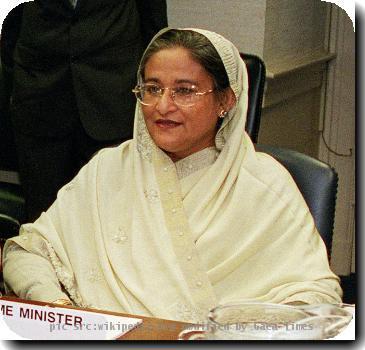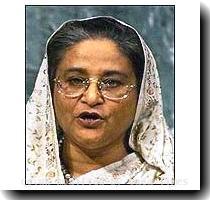Bangladesh announces tribunal to try war crimes during its 1971 independence war
By Farid Hossain, APThursday, March 25, 2010
Bangladesh sets up war crimes tribunal
DHAKA, Bangladesh — Bangladesh set up a war crimes tribunal Thursday for long-delayed trials of people accused of murder, torture, rape and arson during its 1971 independence war.
Three High Court judges will sit in the tribunal, Law Minister Shafique Ahmed told reporters, without specifying when trials would begin. The government also appointed six retired civil, police and military officials to investigate war crimes charges.
The government has already barred about 50 war crimes suspects mostly belonging to the country’s main Islamic party, Jamaat-e-Islami, from leaving the country. Jamaat-e-Islami had sided with Pakistani troops against whom Bangladesh fought the independence war.
On March 26, 1971, Bangladesh — then East Pakistan — declared its independence from West Pakistan, following years of perceived political and economic discrimination.
Bangladesh official figures say Pakistani soldiers, aided by local collaborators, killed an estimated 3 million people, raped about 200,000 women and forced millions more to flee their homes during a bloody nine-month guerrilla war. With help from neighbor India, Bangladesh emerged as an independent nation on Dec. 16, 1971, with the surrender of the Pakistani army in Dhaka.
An amnesty was declared after the war for collaborators who were not directly involved in heinous crimes. It did not cover those who had specific charges or evidence of crimes against them.
A Law Ministry statement said the tribunal will conduct quick trials under a 1973 act outlining prosecution and punishment for people accused of genocide, crimes against humanity, war crimes and other crimes under international law.
If found guilty, some of those tried could face the death penalty.
It was not immediately clear if the tribunal intended to question or prosecute any non-Bangladeshis.
The announcement of the tribunal came a day before Bangladesh celebrates its 40th independence day Friday.
Bangladesh began war crimes trials in 1973, but they were halted in 1975 when the nation’s independence leader, Sheikh Mujibur Rahman, was assassinated in a military coup. Subsequent governments failed to address the issue, despite repeated calls for justice from war heroes and families of those slain.
Rahman’s daughter, current Prime Minister Sheikh Hasina, pledged during her election campaign to prosecute war criminals. Last year, Parliament passed a resolution for their quick trial.
Hasina repeated her promise Thursday.
“We shall not spare those who had killed and raped innocent people during the war,” she told a rally in Dhaka ahead of the Independence Day. “They had committed crimes against humanity.”
Tags: Asia, Bangladesh, Dhaka, Pakistan, Sheikh Hasina, South Asia, Violent Crime, War Crimes

